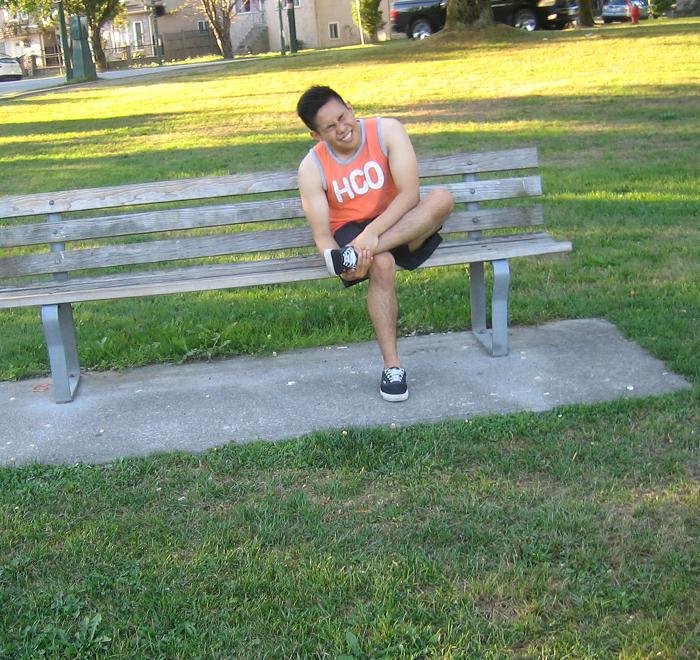Plantar fasciitis is the most common cause of pain affecting the feet. It causes stabbing pain and the sensation of pain and inflammation is usually common in the morning upon getting up out of bed.
The foot is supported by a strong band of tissue or a ligament that attaches the heel to the toes which is called plantar fascia. An irritation or inflammation to this ligament will cause severe pain. Plantar fasciitis can be caused by strain and stress or lack of exercise. An individual suffering from this condition can experience pain when walking and standing.
Middle aged or older adults are more susceptible to this condition but it can also affect young adults who are spending most of their time using the foot such as in running and other sports. An overweight person and women during pregnancy can also be affected by this condition. The use of ill-fitting footwear that does not provide proper support can also put an individual at high risk for developing plantar fasciitis.

Symptoms
- Plantar fasciitis can develop gradually
- Stabbing sensation in the feet
- Affects both foot simultaneously
- The pain is very intense upon getting out of bed in the morning, but the condition becomes severe due to increased stress such as a prolonged standing after a long period of inactivity.
- The pain becomes severe after climbing stairs and running or other types of intense activities.
- An aching and burning sensation at the bottom of the foot.
- Pain after exercising.
Factors that cause plantar fasciitis
- Poor gait and the manner of walking causes an imbalance that will result in excessive pressure on the plantar fascia
- Anatomical feature of the individual such as flat feet or high arches can cause overstretching of the plantar fascia and the development of plantar fasciitis.
- A person who is overweight or obese
- Wearing ill-fitting shoes that do not provide adequate support for the arch as well as wearing old shoes.
- Pregnant women are also susceptible due to the increase in weight and the loosening and the relaxing of the ligaments due to the pregnancy hormone.
- A sudden increase in rigorous activity such as jogging or running adds stress to the foot.
- Athletes who engage in running long distances, jumping and dancing are also at high risk.
Treatment and home remedies
- Get plenty of rest
- Apply an ice pack on the affected area for at least 15-20 minutes several times every day in order to help minimize the inflammation and pain caused by plantar fasciitis.
- Seek the help of a physical therapist for stretching exercises that helps with the healing of the condition.
- Wear footwear that provides good support and cushioning for the foot and avoid using stilettos.
- Use felt pads or a heel cup that helps in protecting the feet.
FACT CHECK
https://orthoinfo.aaos.org/en/diseases–conditions/plantar-fasciitis-and-bone-spurs
https://en.wikipedia.org/wiki/Plantar_fasciitis
https://www.mayoclinic.org/diseases-conditions/plantar-fasciitis/symptoms-causes/syc-20354846
